

Tao Te Ching
Search Sages
Enter all or part of an sage's name or biography in the fields below, then press tab or enter to filter the list of Authors. Click the headings Name or Biography to sort by that column. Diacritics are ignored when searching.
Click on the author's name to go to their page.
| Author Name | Biography |
|---|---|
| Susan B. Anthony | 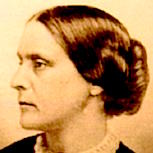 Susan B. Anthony Susan B. Anthony Harshly ridiculed, accused of trying to destroy marriage and the family, arrested for voting; Susan B. Anthony started working to end slavery as a teenager and later ran the largest petition drive against it. Giving up to 100 speeches a year, she organized and campaigned for equal rights leading to the Nineteenth Amendment (popularly called the “Susan B. Anthony Amendment”) giving women the right to vote in 1920. The first woman to be on a U.S. coin, she gave "the most famous speech for woman suffrage,” and her efforts led to legal rights for married women, women being able to attend colleges, and a fundamental, cultural attitude change. |
| Sun Yat-sen | 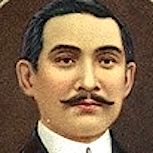 Sun Yat-sen Sun Yat-senThe Republic of China’s founding father and first president, physician, revolutionary, co-founder of the Kuomintang, and uniquely admired by both Taiwan and Mainland China; Sun Yat-sen grew up in Hawaii and after returning to China endured many exiles and almost constant political struggle. He championed the “Rule of Right over the Rule of Might” and dedicated his life to furthering democracy in China, free trade, tax reform, poverty alleviation, independence from foreign influence, and ethnic equality. He set up the first Chinese Central bank and the foundations for Chinese capitalism. |
| Sun Tzu |  Sun Tzu Sun TzuHIstory's supreme strategist A huge influence in China from the first emperor, Qin's Shi Huangdi who considered Sun Tau’ strategy invaluable in his success to Mao Zedong who partially credited to him his 1949 victory over Chiang Kai-shek; Sun Tau also became influential in the West during the twentieth century. It helped leaders unify Japan, generals in Viet Nam win over superior French and American forces, Colin Powell win the Gulf War and continues to help people all over the world involved in politics, the military, business, sports and any competitive endeavor. Sun Tzu uses Daoist principles and terms emphasizing victory over aggression, taking whole, how to be rather than what to do. |
| Sun Qifeng | 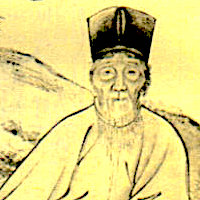 Sun Qifeng Sun Qifeng孫奇逢 (1583–1675) |
| Sun Bu'er | 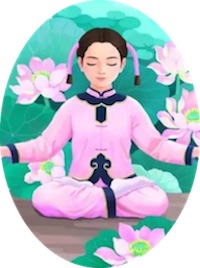 Sun Bu'er Sun Bu'erSun Bu'er 孫不二 (1119 – 1182) |
| Su Shi | 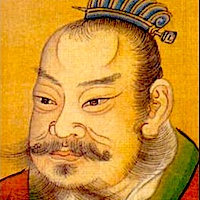 Su Shi Su Shi"pre-eminent personality of 11th century China" Writer, statesman, poet, painter, calligrapher, pharmacologist, and important political figure; Su Shi wrote some of his time's most well-known poems and prose as well as essays on topics from travel to the iron industry. An exceptional and highly honored scholar, while serving in the Hangzhou government, he constructed the famous pedestrian causeway across West Lake. His poems got him into political trouble leading to two long exiles and imprisonment; but also, they brought him a fame that spread to many other countries and continues today. His poems on Buddhist topics became an important influence on Dōgen, founder of the Zen Sōtō school. |
| Su Che |  Su Che Su CheGreat writer of the Tang and Sung dynasties Famous politician and essayist, one of "The Eight Great Men of Letters of the Tang and Song Dynasties,” exiled for his political criticisms; Su Zhe skillfully criticized social conditions in an effort to influence the emperor into creating better living situations for the common person. Champion of reforms to help the poor and protect them from the rich and powerful and also to help the rich realize that their hoarding and selfishness only made them more vulnerable to revolt, robbery, and revolution. The temple where he lived and taught is now a museum and one of China’s more famous cultural attractions. |
| Strom (James) Thurman | 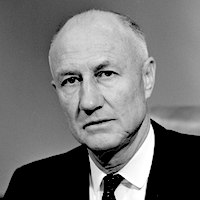 Strom (James) Thurman Strom (James) ThurmanWhite Supremacist Hero Thurman dedicated most of his 48 years as a South Carolina senator fighting against civil rights and racial equality. In 1946 after South Carolina police blinded Black World War II veteran, Isaac Woodard, President Truman proposed legislation to desegregate federal contracting but Thurman led the Southern Racist attempt to stop this by forming the “Dixiecrat” party dedicated to racial segregation. Before the first civil rights legislations was signed into law by Dwight Eisenhower (The Civil Rights Act of 1957), Thurmond inflicted the longest filibuster by a senator on the the senate floor by speaking 24 hours and 18 minutes. He voted against the 1964 Civil Rights Act, the 1965 Voting Rights Act; and, when Goldwater ran for president, Thurman switched parties becoming Republican and leading the five Deep South states to do the same. In 1968, Richard Nixon made a deal with Thurman promising to not let the federal government enforce Black rights in exchange for Thurman political help which he enthusiastically gave. Hypocritically, Thurman—after secretly having a daughter (Carrie "Tunch" Butler) with a 15-year-old Black girl—continued his career focusing on cementing white supremacist policies into the fundamentalist Republican strategy. Infamous for regular acts of sexual harassment, he went a little too far when in 1994 at age 91 he attempted fondling the breast of fellow Senator Patty Murray who he hadn't recognized. |
| Steven Pinker | 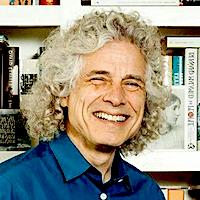 Steven Pinker Steven PinkerHumanistic scientist, insightful cultural commentaror Harvard professor, linguist, cognitive/evolutionary psychologist, humanist, and insightful cultural commentator; Pinker is considered “one of the world's most influential intellectuals.” Translating the significance of new scientific and psychological discoveries into common language, his many books help make these contemporary insights useful in everyday life. Emphasizing the psychology of cooperation and communication, he became a Two-time finalist for the Pulitzer Prize and Humanist of the Year in 2006. His current book, Enlightenment Now helps transmute pessimistic, nihilistic, and negative views into an energized and inspired optimism in relation to both our social and individual states of mind. |
| Steve Jobs | 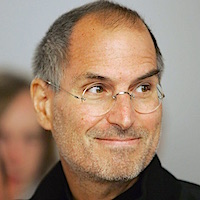 Steve Jobs Steve Jobs |
| Stephen Mitchell | 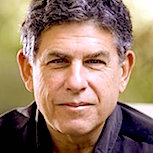 Stephen Mitchell Stephen MitchellTranslator, poet, scholar; Mitchell was “educated” at the Sorbonne and Yale, “de-educated” with intensive Zen practice. He’s written fiction, non-fiction, poetry, children’s books and has translated more than 23 books including the Tao Te Ching, Gilgamesh, The Iliad and The Odyssey, the Bhagavad Gita, and the Poetry of Rainer Maria Rilke called “the most beautiful group of poetic translations the 20th century has produced.” Married to Byron Katie, founder of The Work, he coauthored two of her bestselling books: Loving What Is and A Thousand Names for Joy. |
| Søren Kierkegaard | 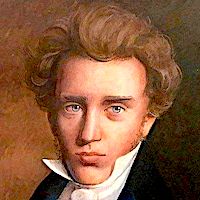 Søren Kierkegaard Søren Kierkegaard"The first existentialist philosopher" Poet, theologian, social critic, philosopher and religious writer; Kierkegaard became a major influence on contemporary world culture. In the world of psychology, he founded Christian, humanistic, and existential schools inspiring therapists and theorists like Viktor Frankl, Carl Rogers, Erich Fromm, and Rollo May. In the field of literature, he influenced and inspired authors like Jorge Luis Borges, Hermann Hesse, W. H. Auden, Franz Kafka, Rainer Maria Rilke, J.D. Salinger and John Updike. His theological/philosophical influence extended to Martin Buber, Karl Jaspers, and Martin Heidegger. Kierkegaard emphasized experience over theory, personal life over "herd instinct," and Christianity as love rather than organization and dogma. |
| Sophocles | 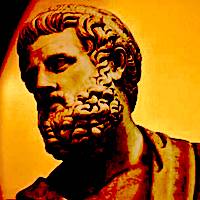 Sophocles Sophocles“The Wise and Honored One” Author of 120 plays, known as “The Wise and Honored One,” most popular Athenian playwright for 50 years, champion wrestler, poet, musician, actor, politician, general, and priest; Sophocles initiated pioneering innovation in the presentation of drama including an emphasis on inner, psychological character development. Strikingly handsome, athletic, enriched and privileged by his family’s wealth from selling weapons during the Persian wars; Sophocles ironically developed a dark pessimistic fatalism. He ranked the unborn as the most blessed and those who die at birth next. His play, Oedipus Tyrannus became the most famous of all Greek dramas. Brought to court by a son fearful that he would bequeath his wealth to an illegitimate son from a prostitute, Sophocles defended himself by reading from a play. This not only won the case but garnered the honor of the judges escorting him home. |
| Soong Mei-ling | 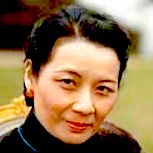 Soong Mei-ling Soong Mei-lingCalled by Life Magazine the "most powerful woman in the world,” by Ernest Hemingway the “empress” of China, and compared by Clare Boothe Luce to Florence Nightingale and Joan of Arc; Soong Mei-ling lived during 3 different centuries, was the Republic of China’s first First Lady, Sun Yat-sen’s sister-in-law, wife and political partner to Chiang Kai-shek. She worked hard fighting against the Japanese invasion of China, toured the USA trying to get support, and started extensive welfare projects and schools for orphans, and worked on many attempts to heal China’s political divisions. |
| Soong Ching-ling | 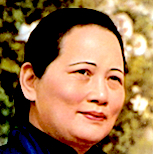 Soong Ching-ling Soong Ching-lingThe "mother of modern China,” wife of Sun Yat-sen, a Vice President of China and Honorary President of the People's Republic of China; Soong Ching-ling makes up an important part of one of history’s most famous and influential sets of sisters. Daughters of an American-educated Methodist minister/banker, one sister - a power in herself - married the leader of the Kuomintang, Chiang Kai-shek; another married the Chinese finance minister and because the richest woman in China. Soong Ching-ling stayed in mainland China and held important government positions but was persecuted during the Cultural Revolution. |
| Songtsen Gampo | 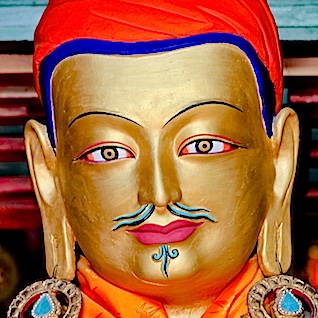 Songtsen Gampo Songtsen GampoFounder of the Tibetan nation, Songtsen Gampo unified Tibet, introduced Buddhism, many new cultural and technological improvements, created the Tibetan alphabet, the first constitution and model laws. After winning a war against China and influence over Nepal, he was given Nepalese and Chinese princess wives who helped him establish trade with surrounding countries and a golden age for Tibet. In Tibetan tradition, both wives are considered incarnations of Tara, the Goddess of Compassion, and Songtsen Gampo as a manifestation of the bodhisattva, Avalokiteśvara. |
| Solovyov | 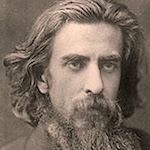 Solovyov SolovyovModel for Dostoyevsky's characters Alyosha and Ivan in The Brothers Karamazov, major philosophical inspiration for numerous writers from Leo Tolstoy to Rudolf Steiner, Solovyov blended Hellenistic, Buddhist, Kabbalistic, early Christian and Gnostic traditions into a philosophy of Sophia as the merciful unifying feminine wisdom of God evolving consciousness and religion. This philosophy tried to reconcile all bodies of knowledge and understanding in a common ground of absolute unity reconciling all opposites, contradictory ideas, traditions and peoples. Called by the press either a Protestant, Jew, Catholic, rationalist, mystic, or nihilist; he defied categories including place and stable career spending most of his life wandering without a home. |
| Solon | 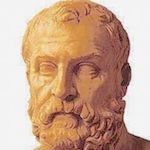 Solon SolonFounder of Athenian democracy Poet, statesman, lawmaker, one of the Seven Sages of Greece and known for establishing the foundations of Athenian democracy; Solon wrote poetry and helped stop the decline in ancient Athens. At that time, not being able to repay a debt meant slavery - first of your children, then your wife, and finally yourself. As much as 92% of all Athenians were slaves. A skilled compromise negotiator, and respected for his wisdom and fairness, Solon was given power to change this. Establishing publicly funded brothels "democratize" the availability of sexual pleasure, he cancelled debts and contracts, freed slaves, and ended the causal system. This along with his beneficial trade legislation and standards resulted in an economic revival, a new golden age, and the beginning of democracy. |
| Solomon ibn Gabirol | 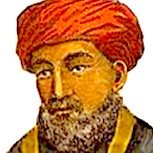 Solomon ibn Gabirol Solomon ibn GabirolThe greatest poet of his age, a Jew for over 600 years regarded by Moslems as a Muslim and by Christians as a Christian, believed a Christian by William of Auvergne who called him “the noblest of all philosophers;” Gabirol grew up in hardship and wandered for years in such poverty that “a fly could now bear me up with ease.” A huge influence on both Christianity and Islam, he championed reason over faith, compiled a book of proverbs independent from Judaism that included wisdom sayings from China, and wrote one of the greatest poems in all of Hebrew literature. |
| Solomon | 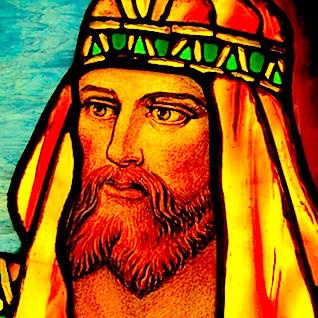 Solomon SolomonMagician, exorcist, great prophet of Judaism and Islam Wealthy and wise king of Israel, son of David, builder of the First Temple in Jerusalem; Solomon – known as a great prophet in both Judaism and Islam, a "Righteous Prophet and King" in the Eastern Orthodox Church, and a great hero in Freemasonry – is not without his detractors for following foreign traditions and marrying foreign wives including a Pharaoh's daughter and Naamah, the only foreigner Queens Mother of Israel or Judah. His openness, wisdom and refusal to fixate on dogmatic orthodoxy invites him to this list. His renown as magician and exorcist include famous legends like the One Thousand and One Nights’ genie sealed in a bottle with his Seal. |